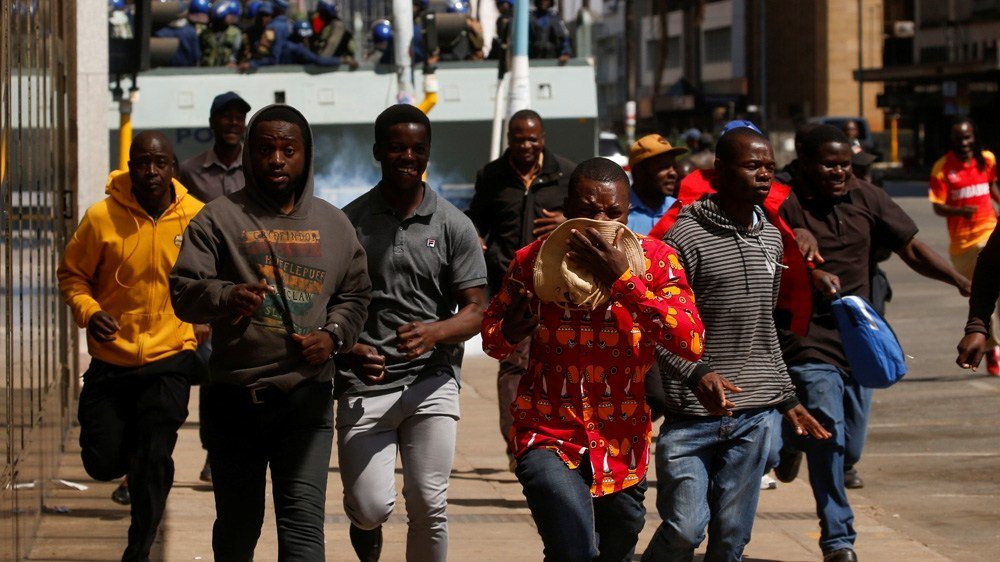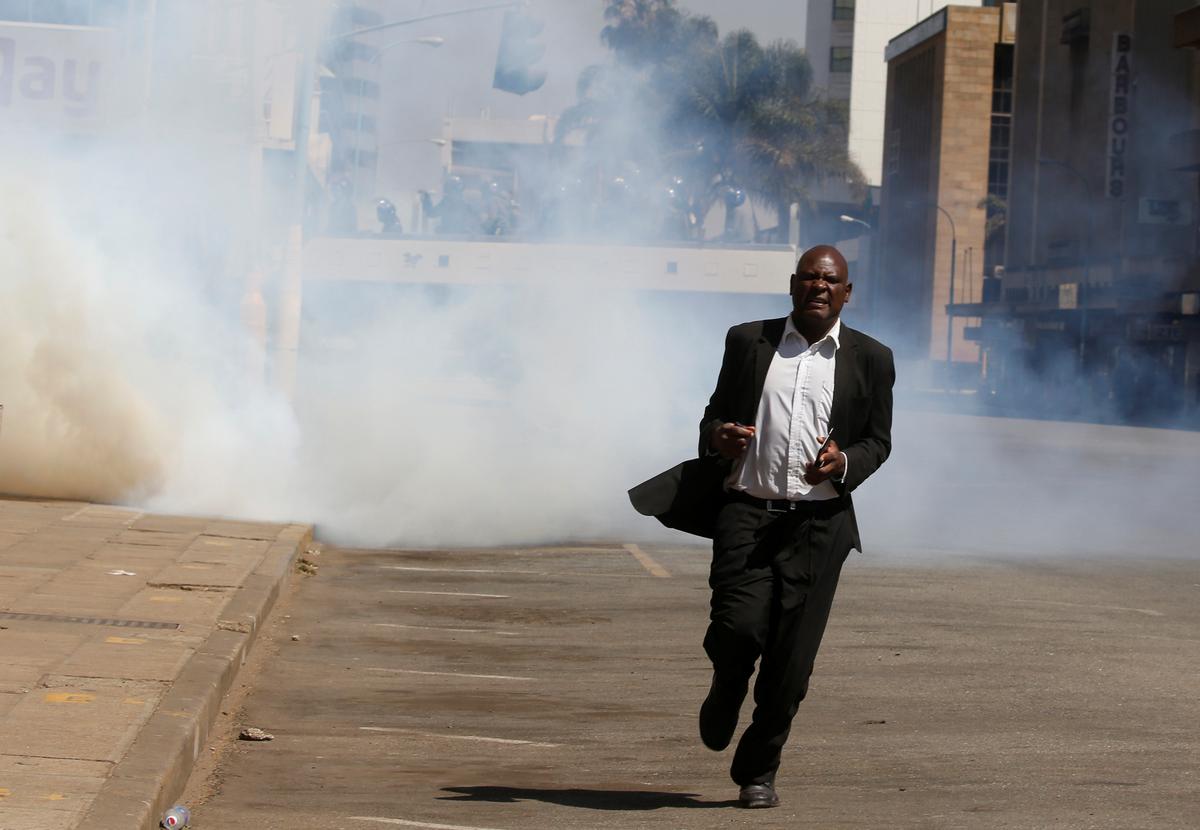Riyaz Patel
Zimbabwe police fired tear gas and beat scores of opposition supporters gathered in central Harare Friday, as authorities moved to enforce a ban on an anti-government protest that the country’s high court had upheld.
More than a hundred Movement for Democratic Change (MDC) supporters defied the ban, witnesses said.
They clashed with police who fired tear gas and water cannons, chasing them from one of the city’s main squares with batons.
Friday’s street demonstration was to have been the first in a nationwide series of protests organised by the MDC, which accuses Emmerson Mnangagwa’s government of state-sponsored violence, corruption and economic mismanagement.
The MDC denounced the ban, labelling it the actions of a fascist government.
The ban – announced late Thursday by police who said any demonstrators would be committing a crime – had “exposed the government’s true colours,” MDC Vice President Tendai Biti told reporters outside the court.
“The constitution guarantees the right to demonstration… yet this fascist regime has denied and proscribed this right to the people of Zimbabwe,” he said Friday.

“We have jumped from the frying pan into the fire after the coup of November 2017… We don’t accept the conduct of this regime, the conduct of Mr Mnangagwa,” Biti added.
In Geneva, a spokesman for the UN Human Rights Commissioner urged the government to engage with citizens on legitimate economic grievances and to “stop cracking down on peaceful protesters.”
The series of demonstrations has been widely viewed as a test of how Mnangagwa, who has so far this year failed to make good on promises of political and economic reform, responds to dissent in a country tainted by a long history of repression.

Elected after the armed forces intervened to oust Robert Mugabe, Mnangagwa had said he aims to break with the long legacy of repression that characterised much of his predecessor’s 37 years in power.
But the economy is mired in its worst crisis in a decade, and Mnangagwa is struggling to convince the growing ranks of poor citizens that his government’s austerity measures and reforms can trigger a recovery.

Zimbabweans had also expected last year’s vote to usher in a new dawn of expanded political rights and an end to the country’s international pariah status, but instead, the elections left the country more polarised.
In a letter to church leaders published on Friday in the state-owned Herald newspaper, Mnangagwa said the economic hardship had its roots in sanctions imposed by the West more than a decade ago as well as a severe drought this year.
Anger is mounting as Zimbabweans grapple with soaring inflation, rolling power cuts and shortages of US dollars, fuel and bread.
He also said MDC leader Nelson Chamisa had rejected his invitation to dialogue meant to resolve Zimbabwe’s political and economic problems.
Chamisa has said he will only sit down with Mnangagwa if there is a neutral arbiter.
